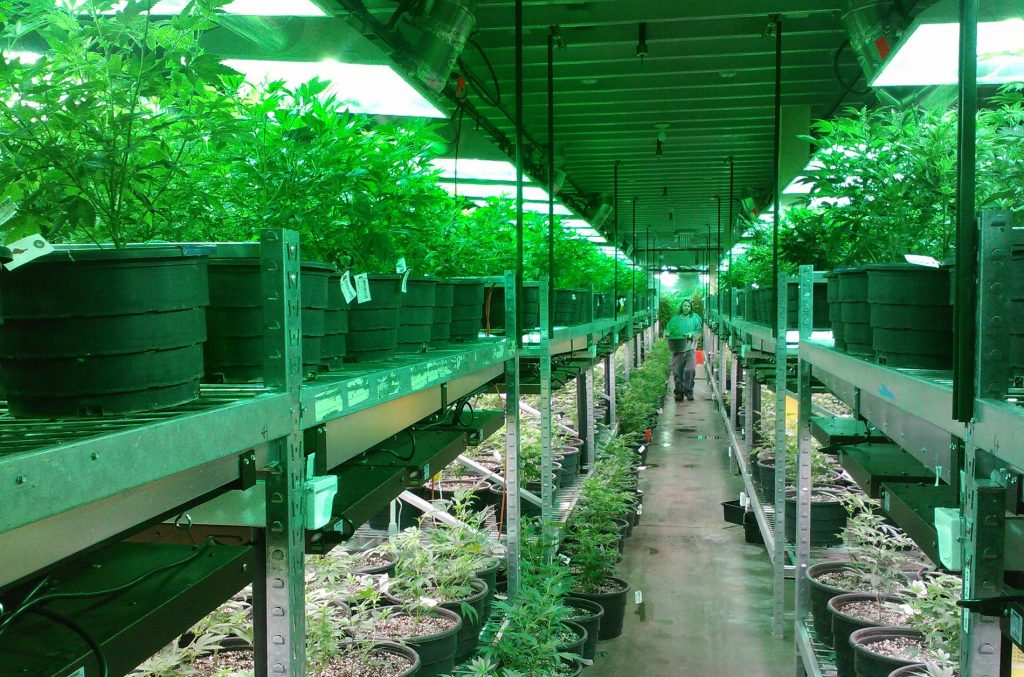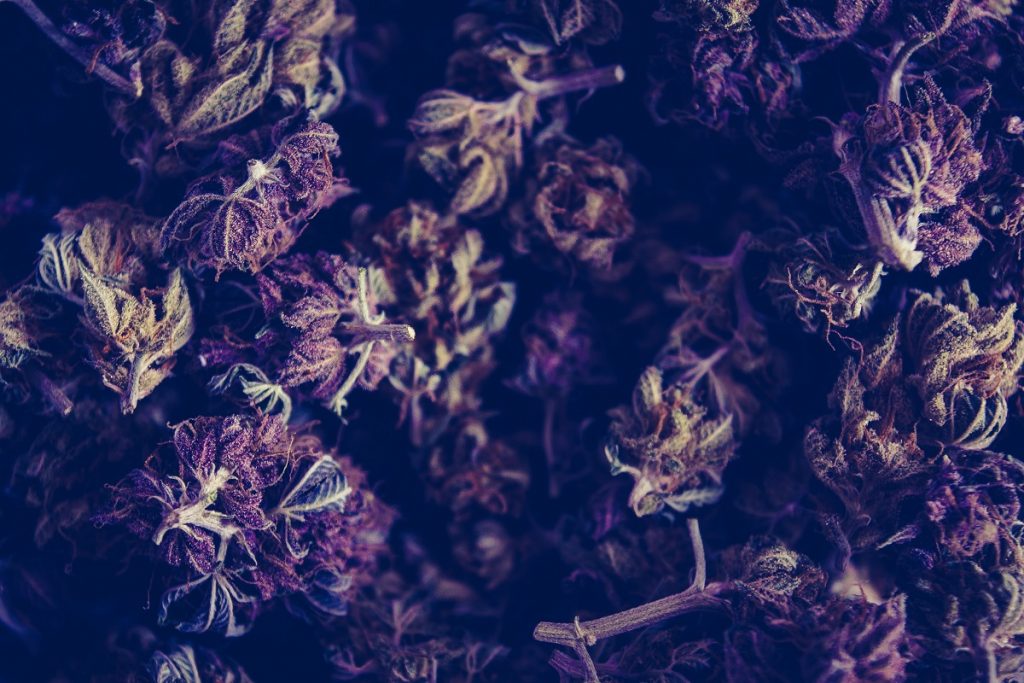Even after months of wrangling, the Israeli government is “still working extensively” on a decision to approve the legalization of medical cannabis exports as part of a set of reforms already underway in the country since 2016, Israeli Minister of Agriculture Uri Ariel announced on Tuesday at the first state-backed medical cannabis conference near Tel Aviv. A decision could be reached as soon as the next few weeks, he added.
His statement was made at Cannaan: Leading the Future, the first government-sponsored conference on medical cannabis hosted by the Israeli Ministries of Health and Agriculture. The three-day convention, taking place this week, is drawing scientists, regulators, medical personnel, farmers, and policy stakeholders “interested in the vibrant field of medical cannabis.”
“I’m actually a little disappointed,” Eitan Kuperstoch of The Foreign Trade Administration for the Ministry of Economy and Industry told the audience at the Kfar HaMaccabiah hotel in central Israel. “I wanted to surprise you with news of a government decision. The government didn’t decide yet. There are still a few obstacles and they are not minor. It will take a few more days.”
Israel in 2016 approved reforms that would ease restrictions on medical cannabis, including a plan to increase the number of cannabis farms and allow exports, which according to government research at the time, is set to bring in an estimated $1 billion in revenue per year, positioning Israel as a top medical cannabis exporter.

Minister of Agriculture Uri Ariel at the Cannaan medical cannabis conference in Ramat Gan, April 24, 2018. Photo by Simona Shemer
Two months ago, Israeli Prime Minister Benjamin Netanyahu suspended export plans amid opposition by the Ministry of Public Security, headed by Gilad Erdan, which said it was afraid plants grown for exports would spill over into the recreational market and demanded some NIS 200 million to its budget to help secure facilities. A reported conversation with US President Donald Trump, whose administration is taking a hard line against cannabis including its medical use, was also said to be the cause of the sudden export freeze in February.
SEE ALSO: Israel Sees Booming Demand From Farmers To Grow Cannabis
The suspension raised the ire of medical cannabis farmers, entrepreneurs, and investors who poured hundreds of thousands of shekels into the industry and who threatened legal action while others began eyeing opportunities abroad. Since the government announced the reforms in 2016, some 400 Israeli farmers applied for permits to grow cannabis, the Israeli Health Ministry said in December, adding that 242 had received preliminary approval by December 2017. The ministry also said it received some 200 applications for cannabis nurseries seeking to distribute cannabis plants, 95 requests to set up cannabis pharmacies, 60 applications for processing facilities, and 44 requests to set up stores selling cannabis products.
Earlier this month, the government announced that it has come up with a revised plan to allocate a budget to Erdan’s Ministry of Public Security for 25 police officers to monitor cannabis growers and operations, and limit the initial operations of cannabis farms to 50, well below the 242 farmers who received initial approval.
“I support the use of cannabis for medical purposes and its export to the world, in light of our advanced knowledge in the field,” Erdan said earlier this month, according to the Jerusalem Post. “However, it is my duty to ensure that the export farms do not cause illegal drugs to be used by Israeli citizens, especially the youth. I am glad that I have reached understandings with the Finance Ministry that will enable the approval of exports.”

An inhaler from Israeli firm Syqe Medical. Courtesy
Oren Lebovitch, who heads Israel’s pro-legalization party Ale Yarok and is the editor of the online magazine Cannabis (Hebrew) tells NoCamels that while the revised plan may sound good on paper, “we’ve been hearing that they will approve exports ‘in a few weeks’ for two years now.”
Lebovitch says that not only is the government dragging its feet, it has now decided to limit the approved cannabis farms to 50, leaving the others hanging.
“How is the government going to decide which 50 farmers will be allowed to operate?” he asks, noting that the state is considering both a lottery system and a tender, which he says “will be thrown out” by the courts.
The farmers, the entrepreneurs, and the investors who received preliminary approval are “planning to go all the way and take the government to court over this,” he says.
“And even if they approve exports tomorrow, it will take an additional 9-12 months to get this off the ground. Other countries have already started exporting, and we are missing out,” Lebovitch notes.
Saul Kaye, founder and CEO of cannabis tech startup accelerator iCan, which hosts the annual CannaTech conference in Tel Aviv, welcomed the government’s revised plan, saying Israel can become the leading global export nation of medical cannabis, where “Cannabis will become as important to Israel’s economy as high-tech.”
“Israel is perfectly positioned to enter and disrupt the medical cannabis market that is expected to soar to $33 billion dollars worldwide in the next five years. Israel, already the most advanced nation on earth in cannabis R&D will now be able to produce and market cannabis base products that will help millions of people suffering from numerous illnesses and afflictions such as cancer, MS, Parkinson’s, sleep disorders, epilepsy, and PTSD, to name just a few,” he said.
Indeed, Israel has been home to groundbreaking R&D in the medical cannabis field.
Sign up for our free weekly newsletter
SubscribeIsraeli researchers have already used cannabis to make great headway in medicine and healthcare, using it to attempt to kill cancer cells, treat traumatic brain injuries, possibly treat autism, and provide pain relief.
This is all done with strong encouragement from the Israeli government, which also invests in the industry (In 2017, the Israeli government said it would invest $2.13 million in 13 research projects on cannabis, making Israel one of three countries with a government-sponsored cannabis program.)
Israel is also one of the few countries where medical cannabis is allowed to be tested on human beings in clinical trials.
But it’s not enough, said Professor Raphael Mechoulam, the “pioneer” of medical cannabis research in Israel. Speaking at the Cannaan conference with an overview of the endocannabinoid system, he said that while Israel is one of the few countries that allow human clinical trials, those trials, seeking hope for treatment of cancer, epilepsy, schizophrenia, diabetes, and autoimmune diseases, are quite limited or nonexistent.
“We need to push ahead with clinical trials,” Mechoulam said, “No one is sure what medical cannabis actually means. Medical cannabis needs to be standardized.”
Ariel also announced at the conference that the Ministry of Agriculture and Israel Medical Cannabis Agency (IMCA) had succeeded in obtaining an additional budget of 50 million shekels ($14 million) from the government for medical cannabis research.
Other speakers at the event included Yuval Landschaft, head of the IMCA, Professor Arnon Afek, Associate Director General of the Israel Ministry of Health and Director of the General Hospital at the Sheba Medical Center, Yifat Raveh of the Israel Ministry of Justice.
After Ariel reiterated that “there is no real reason for Israel not to export medical cannabis,” Afek said that perhaps a decision can be reached with proper regulation, noting that “regulation of research is not less important than regulation of medicine.”
Afek and Ministry of Justice representative Yifat Raveh cited different ways to regulate and standardize cannabis during the conference, with Raveh adding that reasons for a negative view of cannabis include its social stigma and a fear of change. While offering a roadmap of cannabis use in Israel, Afek said it was an “emotional issue” and that while 80 percent of medical cannabis use in Israel is done through smoking, he hopes new products such as inhalers will help standardize medical cannabis products.
SEE ALSO: Bill Nye Highlights Israel As The World Epicenter Of Medical Cannabis Research
Meanwhile, Some of Israel’s more established medical cannabis movers and shakers don’t appear to be waiting on the government.
Earlier this month, Israeli cannabis company Together Pharma announced that its subsidiary Globus Pharma signed a deal to sell medical cannabis or cannabis oil to an unnamed Canadian company with a license to grow, produce and import medical cannabis. Under the agreement, the Canadian company will buy 50 tons of dried inflorescences (flowers) of cannabis each year or its equivalent, five tons of medical cannabis oil from Globus Pharma. The company also announced it finalized an agreement to set up a complex of greenhouses of up to 25 acres in a foreign country. The aim would be to market and export up to about 60 tons of medical cannabis annually, at an estimated value of $75 million in initial revenue.
And last month, Medivie Therapeutic, one of Israel’s biggest medical cannabis firms, announced a deal worth $110 million to grow and export medical cannabis to an unnamed foreign investor over a four-year period.
In another milestone move, 20 Israeli pharmacies began selling medical cannabis products on April 20, or 4/20 which in cannabis culture refers to the consumption of cannabis, as part of a government pilot program. Patients with a medical cannabis license are now able to purchase products prescribed by their doctors at the assigned pharmacies instead of the few tightly regulated dispensaries. More pharmacies are expected to be added to the program in the future.
During the conference, Afek mentioned that a prescription for medical cannabis was handed out Sunday by Dr. David Frankel of Jerusalem’s Alin Hospital. In a first for Israel, the patient was not required to obtain a license for the use of medical cannabis from the Israel Medical Cannabis Agency.
Related posts

Editors’ & Readers’ Choice: 10 Favorite NoCamels Articles

Forward Facing: What Does The Future Hold For Israeli High-Tech?

Impact Innovation: Israeli Startups That Could Shape Our Future






Facebook comments